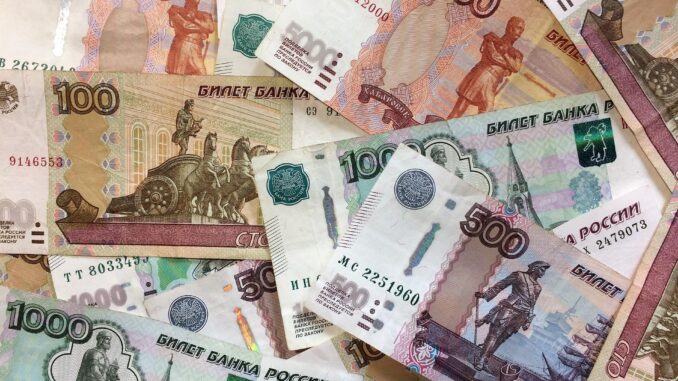
[Na Krymu jde o těžký prachy. Putin chce ropu za 200 USD]

Executive Summary

This article explores the complex geopolitical and economic motivations behind Russia’s annexation of Crimea in 2014, focusing specifically on the potential for vast oil and gas reserves in the region. We delve into the historical context, examining the strategic importance of Crimea for both Russia and Ukraine, and analyzing the potential economic benefits that Russia could reap from controlling these resources. We also consider the international ramifications of Russia’s actions, including sanctions and the ongoing conflict in eastern Ukraine.

Introduction
In 2014, the world watched in shock as Russia annexed the Crimean Peninsula from Ukraine. While the annexation was met with international condemnation, Russia cited the protection of its Russian-speaking population and historical ties to the region as justifications. However, many experts believe the true motivation behind Russia’s actions lay in the economic potential of Crimea’s vast oil and gas reserves. This article will delve into the complex interplay of geopolitics and economics that fueled this dramatic event.
FAQ
Why is Crimea so important to Russia? Crimea has long been a strategically vital region for Russia. The peninsula boasts a crucial Black Sea port, Sevastopol, which houses Russia’s Black Sea Fleet, giving Moscow significant naval presence in the region. Furthermore, Crimea is home to a sizable Russian population, a factor that Russia used to justify its annexation.
What are the potential economic benefits for Russia in controlling Crimea’s resources? Crimea is believed to be rich in oil and gas reserves. If Russia manages to secure these resources, it could significantly boost its energy independence and control over global energy markets.
What are the consequences of Russia’s annexation of Crimea? The annexation has led to severe international sanctions against Russia, hampering its economy. The conflict has also sparked unrest in eastern Ukraine, further destabilizing the region and creating a humanitarian crisis.
The Strategic Importance of Crimea
Black Sea Naval Base: Sevastopol, the main port in Crimea, is home to Russia’s Black Sea Fleet, giving Russia a powerful presence in the region. The port allows Russia to project naval power into the Mediterranean Sea and the wider Black Sea basin, influencing regional affairs and potentially threatening NATO interests.
Historical Ties: Russia has claimed historical ties to Crimea, dating back to the time when the peninsula was part of the Russian Empire. Russia used this historical connection to justify its annexation, arguing that it was restoring the peninsula to its rightful place.
Russian Population: Crimea has a majority Russian population, a factor that Russia has used to justify its intervention. Russia claimed that it was acting to protect the rights of Russian-speaking citizens in Crimea.
Control of Waterways: Control over Crimea grants Russia significant control over shipping lanes in the Black Sea. This strategic advantage allows Russia to monitor and potentially restrict access to vital trade routes, wielding influence over the economic activity of neighboring countries.
Potential for Oil and Gas Resources
Untapped Reserves: Experts believe that Crimea’s seabed could hold vast untapped reserves of oil and natural gas. Control over these resources could give Russia a significant boost in its energy independence and potentially increase its leverage in global energy markets.
Gas Pipeline Route: Crimea is strategically located near potential routes for gas pipelines to Europe. Russia’s control over this territory could allow it to exert influence over gas exports to Europe, potentially strengthening its position in the European energy market.
Energy Security: Securing the oil and gas reserves in Crimea could offer Russia a significant strategic advantage in terms of energy security. This could reduce Russia’s reliance on other countries for energy resources and give it greater autonomy in managing its energy policies.
Potential for Investment: The potential for oil and gas discoveries in Crimea could attract significant investment from Russia and international companies. This would boost the Crimean economy and potentially create jobs in the energy sector.
The International Ramifications of Russia’s Actions
Sanctions: The annexation of Crimea has led to severe international sanctions against Russia, targeting various sectors of its economy, including finance, energy, and defense. These sanctions have significantly impacted the Russian economy, leading to economic stagnation and a decline in living standards.
Conflict in Eastern Ukraine: Russia’s actions in Crimea have fueled a conflict in eastern Ukraine, where Russian-backed separatists have been fighting Ukrainian forces. The conflict has resulted in a humanitarian crisis, with millions of people displaced and thousands killed.
Geopolitical Tensions: Russia’s annexation of Crimea has significantly increased geopolitical tensions between Russia and the West. NATO has responded by increasing its military presence in Eastern Europe, while Russia has engaged in aggressive military exercises and deployments, raising fears of a potential military confrontation.
International Condemnation: The annexation of Crimea has been widely condemned by the international community, with the vast majority of countries refusing to recognize it as legitimate. The United Nations General Assembly has passed a resolution condemning Russia’s actions and calling for the withdrawal of Russian forces from Crimea.
Conclusion
The annexation of Crimea by Russia in 2014 was a complex event driven by a confluence of political, strategic, and economic factors. While Russia framed its actions as a defense of the Russian-speaking population and a restoration of historical ties, the potential for vast oil and gas reserves in the region played a significant role in motivating the move.
The annexation has had far-reaching consequences, triggering international sanctions against Russia, fueling conflict in eastern Ukraine, and escalating geopolitical tensions between Russia and the West. The ongoing dispute over Crimea remains a significant source of international instability and underscores the complex challenges of navigating the delicate balance of power in a globalized world.
Keyword Tags
- Russia
- Crimea
- Ukraine
- Oil and Gas Reserves
- Black Sea Fleet
- Sanctions
- Geopolitics
- Energy Security
- International Relations
Rusko stojí o Krym. Důvodem ale není
Podělte se o svůj názor